Born and raised in Kalama, WA, thirty mins north of Vancouver, WA, Mac grew up in a busy family. “We did everything in Vancouver, everything. My dad worked in Vancouver. All my siblings went to school in Vancouver. I went to school in Vancouver. I went to a blindschool. We did extra extracurricular activities in Vancouver…. So we drove a lot.” Mac’s family spent hours in the car listening to music and audiobooks. “That was our life.”
Mac was born totally blind. “I’ve never had any vision. I’ve never seen anything ever.”
“My dad played piano – he used to play for our church and for some other things he accompanied some of us kids. He played and he was always playing, and from stories I’ve heard, I picked up on it [piano] because of that. At a very young age – I wasn’t more than two – I started picking up piano and apparently I had rhythm. So I would pluck things out in rhythm, and then I would learn how to pluck things out musically just by doing it.”
Music became a key part of Mac’s life when he was eleven. “I look back on life and that was the turning point for sure. I got this keyboard – it was my first real keyboard that could be used in a professional setting.”
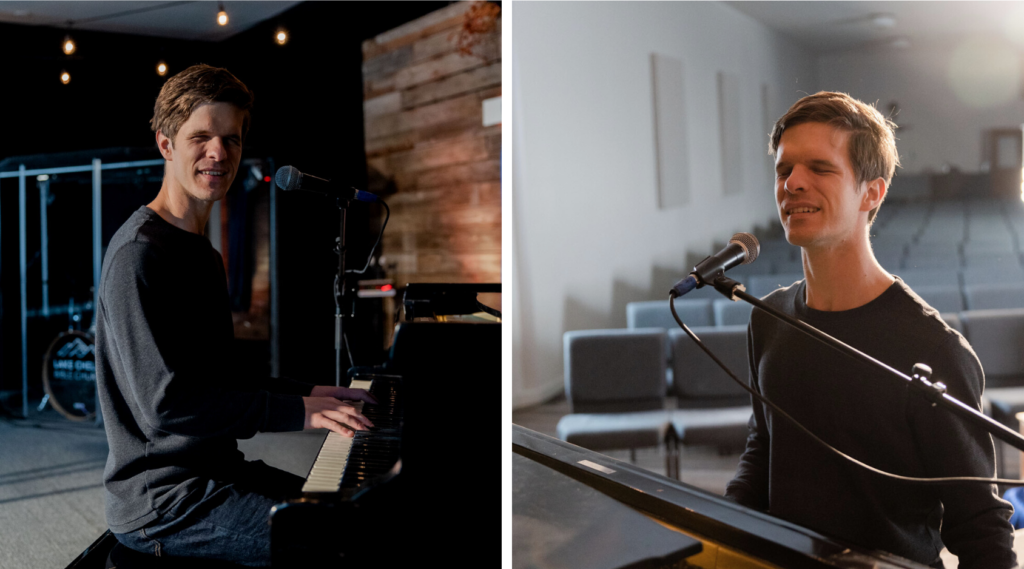
“It still was pretty intermediate in considering keyboards, but it was my first real deal thing. I learned how to record stuff. I learned basic sound. There was a lot that I learned by being completely self-taught, no lessons. I learned how to build drum tracks by hand.I learned how to build a band. I would record songs and my first few songs were very busy… Little by little, it got more polished.”
Mac started playing at local events. “I was being paid $20-$25 in tips. Or they’d give my parents some money (and say) ‘Take him out to ice cream. I heard he likes ice cream. That was the thing for me – post-gig ice cream.”
Mac attended blind school until fourth grade, at which point he was mainstreamed into public school. “Going to the blind school … was all I knew and I hadn’t really made many friends my own age.”
“There was just different things going on. I wasn’t autistic, but yet being blind, there’s some tendencies that get confused with autism. And a lot of blind people are actually autistic or actually disabled.”
He shares that he felt like a bit of an anomaly at the blind school because he wasn’t struggling developmentally, but the culture he was in didn’t have some of the social pieces kids usually learn and experience in school. “I just missed out on some [of those social queues]. So going to the blind school was a learning curve because I was suddenly around these blind kids, but some of them couldn’t speak at all.”
In fourth grade, Mac began attending public school. “I was suddenly really good. I was exceeding expectations for what most of the other kids were able to do. I was going into fourth grade, but I was at a middle school level with everything except reading out loud, because that’s expected for braille readers.”
“I was sometimes lagging behind in group activities. I was socially awkward. I was also kind of getting more into music. This was right before (I turned) eleven. And so [my peers] were all getting into sports because it’s that time… you pick your team, you pick your activity, you do your thing, but I couldn’t play sports. I could play music, but nobody cared about that.”
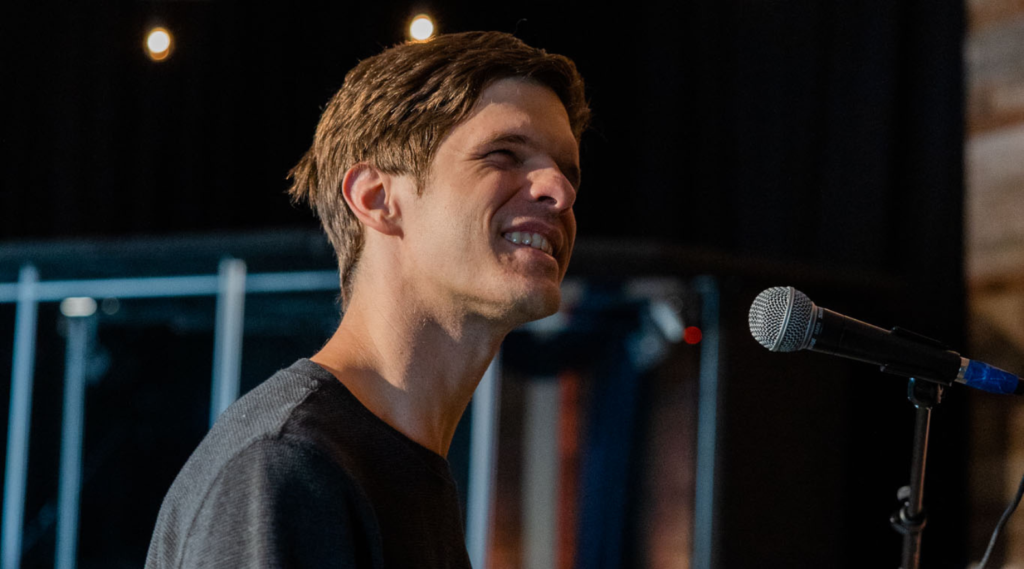
In middle school, Mac began connecting with his classmates in more meaningful ways. “What really helped was band. At least all these people were playing music.”
“I always looked forward to band. It was when I felt like I could just be myself. And because everyone had the same interest, whether it was just to get a grade or because they enjoyed it, we’re all playing or talking about music.”
When Mac was around 13 or 14, he began to play in the local blues community in Portland. He then faced alienation because as he was being publicized as a prodigy; “that wasn’t relatable to my peers.” In high school, Mac began attending football games. It became a social currency for him as a teenager in high school looking for a place to belong. “I was getting into it and I was then able to talk about it at school on Monday morning… I was able to talk about it and that was a big, giant game changer for me.”
During this time, Mac said he started to care less about what people thought about him or his personality. He brought a good friend to a high school dance. “I was like whipping her around and dancing and people said, ‘What are you doing?’ I am dancing, because it’s a dance.” They told him “People just hold hands, make out, and talk, Mac.”
“Halfway through my senior year, at one point, some guy was playing a guitar and I said, ‘Hey, can I steal your guitar?’ And he’s like “Sure, I didn’t know you played.’ I’m like “I try and I have enough rhythm… It’s not very good, but it’s enough. So I played a song that’s really popular right then. When I was done, the whole hallway was just watching, singing along and clapping, and they were digging it. So I played another song and I had everyone’s attention because I was able to met people where they were at. I was playing an instrument that I wasn’t very good at, and so instead of looking like a show off, I looked like the guy playing next to me who was barely better than me. And I think people liked to see ‘Mac just goofing off.’”
“I finally felt at home and then I graduated. I was happy to be done with school, but I was kind of sad in a way because I felt like I had just found myself.”
When Mac was 16, he met his wife, Hailey, while playing as a lobby pianist for the 10 Grands in Portland, Oregon. “We’d see each other every year at the same show. I played with her at one of the Salvation Army recitals before camp happened and the director of the camp was like ‘You guys should play something together.’”
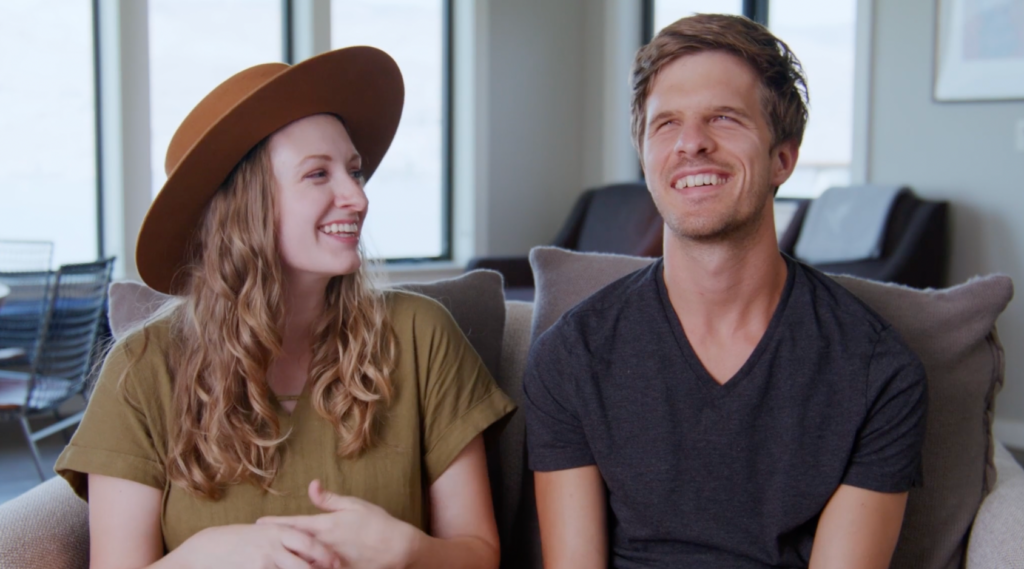
Mac asked Hailey to get together to figure out the song they were playing together. “I was going to take her out to lunch on me… [and then] we could practice our show.”
“And that’s what we did. We hung out at dinner until her parents came. We both kind of knew something special happened that night and there you go- three kids later.”, he chuckles.
Mac shares about learning not to define himself by his blindness and instead embrace who he is. He says it’s important not define yourself as something other that who you were created to be.
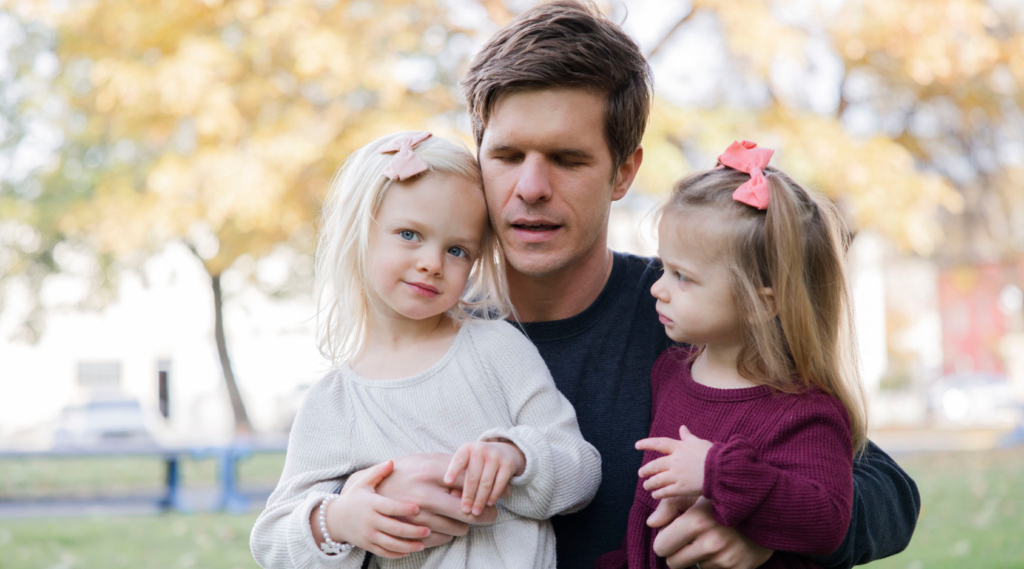
“Don’t identify with something other than just who you were created to be. As long as that’s in line with good morals and appropriate standards (which can vary for different people), don’t identify with something. [If] you are Molly, or you’re Ryan or Cody – that’s who you are. Beyond that, just let it go.”
Mac recommends seeking inspiration from social media and from people who are “willing to share with you the broken parts, like the ugly parts, because… you know, the internet life looks perfect. Maybe get to know them, send them emails, send the messages, ask them about their story.”
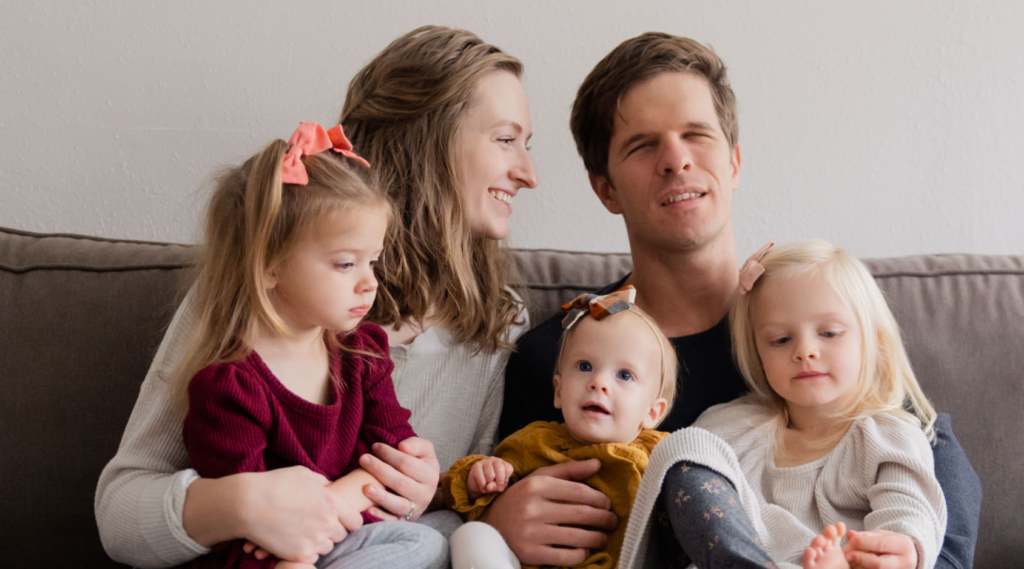
He also says: “As an inspirational person, make sure you communicate the broken stuff if you’re able to. Because the ugly stuff is what people need to hear about along with the good stuff. [That’s when] they realize, ‘Oh, I’m struggling too.’”
“I still struggle with fear and anxiety., I don’t like certain judgments upon me and I still have to get over myself. And life ain’t easy. But not all of it is because I’m blind – it’s just life. So for everyone out there, I would go scout the internet for inspirational stories. But make sure you get past those “picture perfect” looks. Make sure you get to the root of some of this stuff, because then you’ll realize that they’re struggling just as much as you are.”

Watch: Mac & Hailey’s Story on short video | Listen: Mac’s Story on the podcast | Access: Resources

View comments
+ Leave a comment